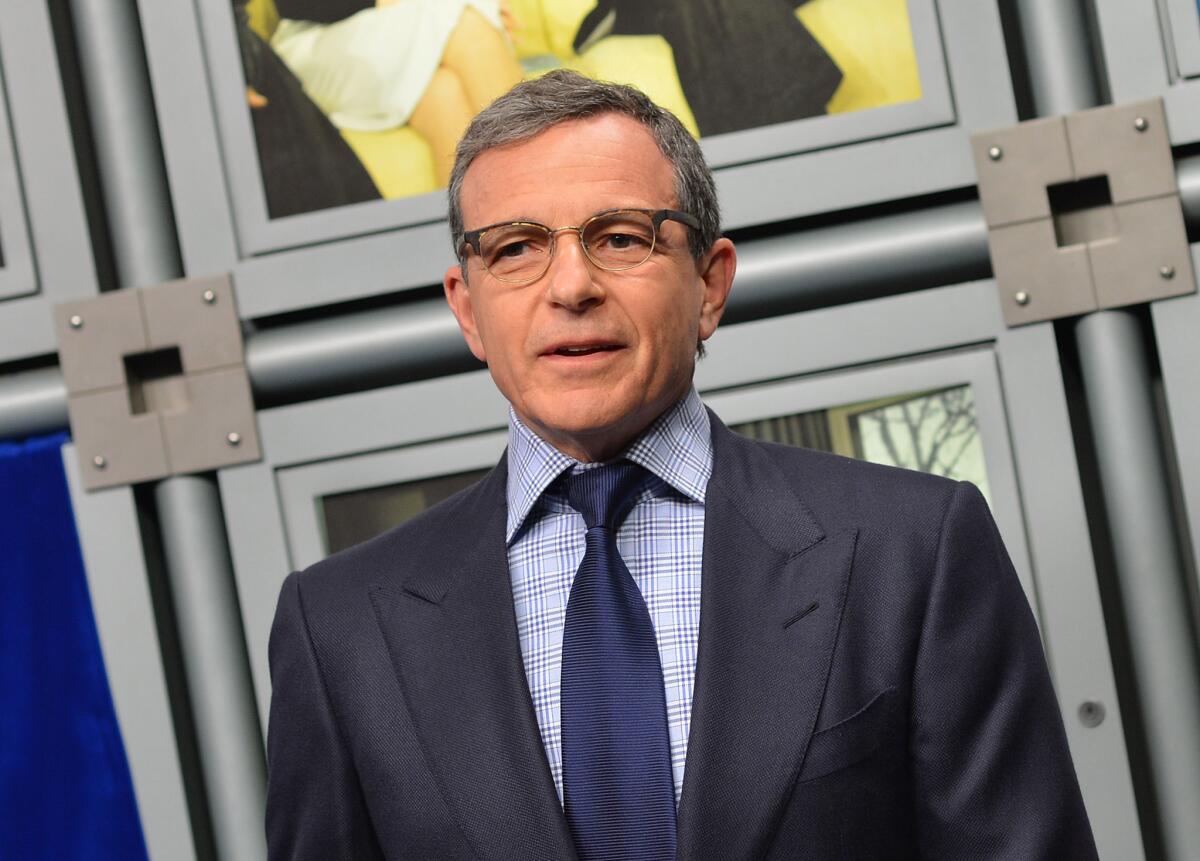Disney CEO Robert Iger’s compensation dropped slightly to $43.9 million in 2016

Walt Disney Co. Chief Executive and Chairman Robert Iger’s total compensation was $43.9 million during the company’s most recent fiscal year, according to a Securities Exchange Commission filing.
His compensation during fiscal 2016, which ended Oct. 1, was down 2.3% from $44.9 million a year earlier.
Iger, 65, received a base salary of $2.5 million, $8.8 million in stock awards, $8.5 million in option awards and a $20-million performance-based cash bonus. The drop in Iger’s compensation was due to a lower cash bonus; it totaled $22.3 million in the prior year.
Disney said the bonus was lowered slightly because “growth for fiscal 2016 was not quite as strong as the company’s growth in fiscal 2015.”
Burbank-based Disney is coming off a strong year at the box office, buoyed by hits including “Rogue One: A Star Wars Story,” “Zootopia,” “Finding Dory” and “The Jungle Book.” It finished ahead of all other studios in the domestic box-office race.
In November, Disney reported a fourth-quarter profit of $1.77 billion, up 10% from a year earlier, although it failed to deliver on analysts’ expectations.
Iger is expected to step down from his post after his contract expires in June 2018.
The filing also indicates that Disney’s former chief operating officer, Thomas Staggs, received total compensation of about $15.6 million in 2016. Staggs had been viewed as Iger’s heir apparent, but he said in April that he would step down a month later, throwing Disney’s succession plans into question. He remained with the company in an advisory role through the end of the fiscal year.
In a separate filing Friday, a trust that controls the stake in Disney held by Steve Jobs’ widow, Laurene Powell Jobs, disclosed that it had cut its holdings in the company by roughly half to 4%.
With the divesting, Powell Jobs is no longer Disney’s largest shareholder; now Vanguard Group assumes that position (it holds 5.5%).
A statement released by Powell Jobs’ Emerson Collective organization, which works in areas including education and immigration, said that she remains “a significant shareholder” in Disney and that the sale was part of “normal long-term financial planning and portfolio diversification.” It said that such diversification is part of her “philanthropic and impact investing efforts” through Emerson Collective.
Twitter: @DanielNMiller
More to Read
Inside the business of entertainment
The Wide Shot brings you news, analysis and insights on everything from streaming wars to production — and what it all means for the future.
You may occasionally receive promotional content from the Los Angeles Times.










